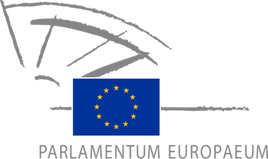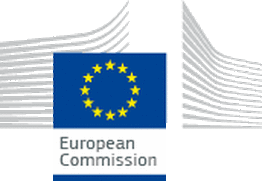The European Union
|
After the 2014 elections the European Parliament must have 751 members, i.e. 15 fewer seats, so as to comply with the Lisbon Treaty. To keep member state's losses to a minimum, 12 EU countries would each lose one seat, while the others would gain none, under a "pragmatic solution" proposed by the Constitutional Affairs Committee on Tuesday. MEPs also called for an overhaul of voting methods in the Council of Ministers, as part of a future EU treaty reform.
To bring Parliament's composition into line with the Lisbon Treaty and make room for Croatia's MEPs when it joins the EU, the committee voted for a "pragmatic solution" for the 2014-2019 parliamentary term, based on the principle that "nobody gains seats and nobody loses more than one". This solution should avoid a "traumatic reallocation of seats, with heavy losses for medium and small member states and huge increases for big ones". It is also "the one most likely to win a majority within Parliament and unanimity in the Council", said lead MEPs Roberto Gualtieri (S&D, IT) and Rafał Trzaskowski (EPP, PL). The aim is to keep member states' losses of seats to a minimum, whilst respecting as far as possible the "degressive proportionality" principle, whereby MEPs from larger member states represent more citizens than those from smaller ones. Twelve member states to lose one seat each The committee's proposed solution would mean that Romania, Greece, Belgium, Portugal, Czech Republic, Hungary, Austria, Bulgaria, Ireland, Croatia, Lithuania and Latvia would each lose one seat at the next European elections (see table below). This plan was approved with 21 votes in favour and one abstention. In a close vote (10 in favour, 9 against), the committee recommended that Austria, rather than Sweden, should be among the 12 member states to lose one seat each, as the least unfair solution on population grounds. Malta, Luxembourg, Cyprus and Estonia would each continue to have 6 seats, the minimum possible under the Lisbon Treaty. No member state would increase its number of seats. Remaining three seats to come from Germany The remaining 3 seats in the 15-seat reduction would necessarily come from Germany, whose share under the Treaty must be cut from 99 seats to 96 (maximum allowed by the Lisbon Treaty). These 3 extra seats were part of a transitional arrangement that expires at the end of the current legislature. Looking ahead to 2019 This allocation of seats should be revised sufficiently far in advance of the start of the 2019-2024 parliamentary term, MEPs say. The committee undertook to table a new proposal before the end of 2015 to establish a durable and transparent system for allocating seats among EU member states "in an objective manner", before each European election. This system should take account of any increase in the number of member states and demographic trends, "without excluding the possibility of reserving a number of seats to members elected on transnational lists", MEPs add. |
Member states of the EU
Candidate countries Potential countries
|
Overhauling the Council of Ministers voting system
The new system for allocating seats in Parliament should be considered together with an overhaul of voting methods in the Council of Ministers, as part of an overall reform of the EU treaties, This reform should be shaped in a European Convention, "on the understanding that the treaties base EU democracy on the representation of both citizens and member states".
Who decides?
Parliament has the right to submit a proposal on its composition to EU heads of state and government in the European Council. The European Council must then decide by a unanimous vote. This decision can take effect only with Parliament's consent.
The new system for allocating seats in Parliament should be considered together with an overhaul of voting methods in the Council of Ministers, as part of an overall reform of the EU treaties, This reform should be shaped in a European Convention, "on the understanding that the treaties base EU democracy on the representation of both citizens and member states".
Who decides?
Parliament has the right to submit a proposal on its composition to EU heads of state and government in the European Council. The European Council must then decide by a unanimous vote. This decision can take effect only with Parliament's consent.
A Brief Summary of the history of European Union enlargement
Backround for the institutions and parliamentary work at the EU
There are three main institutions responsible for the agreement and implementation of legislation in the EU, namely The European Parliament - The European Commission - The Council of the European Union.
There are three main institutions responsible for the agreement and implementation of legislation in the EU, namely The European Parliament - The European Commission - The Council of the European Union.

The European Parliament (EP) is the only directly-elected EU body and one of the largest democratic assemblies in the world. The European Parliament has been steadily gaining power over recent decades and now acts as a co-legislator for nearly all EU law. Together with the Council, the Parliament adopts or amends proposals from the Commission.
The Parliament also supervises the work of the Commission and adopts the European Union's budget. Elected members organise along political lines. They form political parties to better defend their positions.
There are seven groups/parties, but the number of the political parties will increase in 2014 elections. A political party at European level is an organisation following a political programme, which is composed of national parties and individuals as members and which is represented in several Member States. As mentioned in the Treaties: "political parties at European level are important as a factor for integration within the Union". Most of Parliament's in-depth work is done in specialised committees that prepare reports that will later be voted on in the plenary.
The Parliament also supervises the work of the Commission and adopts the European Union's budget. Elected members organise along political lines. They form political parties to better defend their positions.
There are seven groups/parties, but the number of the political parties will increase in 2014 elections. A political party at European level is an organisation following a political programme, which is composed of national parties and individuals as members and which is represented in several Member States. As mentioned in the Treaties: "political parties at European level are important as a factor for integration within the Union". Most of Parliament's in-depth work is done in specialised committees that prepare reports that will later be voted on in the plenary.

The Council of the European Union is the institution, where the Member States' government representatives sit, i.e., the ministers of each Member State with responsibility for a given area. The Council is the law-maker. It adopts legislative acts including regulations and directives usually together with the European Parliament. In most cases, the Council can only legislate on the basis of proposals submitted to it by the European Commission. It can ask the Commission to submit any proposals it may deem appropriate. Since the entry into force of the Treaty of Lisbon, a million citizens may also sign a petition inviting the Commission to submit a proposal. This is the citizens' right of initiative.

The European Commission (EC) represents the interests of the EU as a whole, and is the executive institution of the EU responsible for proposing new legislation to the European Parliament and the Council of the European Union, and EC ensures that EU law is correctly applied by member countries, decisions implemented. EC is responsible also for upholding the Union's treaties and day-to-day running of the EU.
The term Commission refers to both the 28 Commissioners and the wider institution itself. The Commission has the right of initiative to propose laws for adoption by the European Parliament and the Council of the EU.
In most cases, the Commission makes proposals to meet its obligations under the EU treaties, or because another EU institution, country or stakeholder has asked it to act. From April 2012, EU citizens may also call on the Commission to propose laws (European Citizens’ Initiative). The principles of subsidiarity and proportionality mean that the EU may legislate only where action is more effective at EU level than at national, regional or local level, and then no more than necessary to attain the agreed objectives.
The term Commission refers to both the 28 Commissioners and the wider institution itself. The Commission has the right of initiative to propose laws for adoption by the European Parliament and the Council of the EU.
In most cases, the Commission makes proposals to meet its obligations under the EU treaties, or because another EU institution, country or stakeholder has asked it to act. From April 2012, EU citizens may also call on the Commission to propose laws (European Citizens’ Initiative). The principles of subsidiarity and proportionality mean that the EU may legislate only where action is more effective at EU level than at national, regional or local level, and then no more than necessary to attain the agreed objectives.
Early strange political focus on petty details:
Meanwhile the EU was busy with determining whether the cucumber should be straight or bent - many animals had to wait and are still waiting on important laws and directives that could give them a better life.
Under the previously regulations, Class 1 cucumbers must be "practically straight" and be bent by a gradient of no more than 1/10. Produce that does not meet the minimum standards can not at present be sold as second-class, meaning many edible items are thrown away by farmers - Bent banana and curved cucumber rules dropped
Under the previously regulations, Class 1 cucumbers must be "practically straight" and be bent by a gradient of no more than 1/10. Produce that does not meet the minimum standards can not at present be sold as second-class, meaning many edible items are thrown away by farmers - Bent banana and curved cucumber rules dropped

Article 13 of the Treaty on the Functioning of the European Union (TFEU) states that "In formulating and implementing the Union's agriculture, fisheries, transport, internal market, researchand technological development and space policies, the Union and the Member States shall, since animals are sentient beings, pay full regard to the welfare requirements of animals, while respecting the legislative or administrative provisions and customs of the Member States relating in particular to religious rites, cultural traditions and regional heritage".
This puts animal welfare on equal footing with other key principles mentioned in the same title, i.e., promote gender equality, guarantee social protection, protect human health, combat discrimination, promote sustainable development, ensure consumer protection and protect personal data. Although Article 13 of the TFEU requires paying full regard to the welfare requirements of animals when formulating and implementing some EU policies, it does not give a legal base nor require addressing all animal welfare issues!
This puts animal welfare on equal footing with other key principles mentioned in the same title, i.e., promote gender equality, guarantee social protection, protect human health, combat discrimination, promote sustainable development, ensure consumer protection and protect personal data. Although Article 13 of the TFEU requires paying full regard to the welfare requirements of animals when formulating and implementing some EU policies, it does not give a legal base nor require addressing all animal welfare issues!

Thus, it needs to be noted that the European Union operates under the principles of conferred competences and subsidiarity. So competences not conferred upon the Union in the Treaties remain with the Member States and under the principle of subsidiarity, in areas that do not fall within its exclusive competence, the Union shall act only if and in so far as the objectives cannot be sufficiently achieved by the Member States (Article 1, 4 and 5 of the EU Treaty).
As a consequence certain topics of animal protection remain under the responsibility of the Member States. These areas include the use of animals in competitions, shows, cultural or sporting events and the management of stray dogs. The welfare of companion animals and homeless companion animals is therefore not governed by the EU rules, and remains under the sole responsibility of the Member States. In addition, as for the point on the EU law (COUNCIL REGULATION 1099/2009) on the protection of animals at the time of killing only concerns the killing of animals in slaughterhouses as well as those kept for farming purposes. Animals killed under other circumstances (hunting, bullfighting, stray dogs or cats in shelters, animals in the wild) are not part of the scope of this regulation. Those areas are covered by national legislation and European Union's competences are either limited or excluded.
As a consequence certain topics of animal protection remain under the responsibility of the Member States. These areas include the use of animals in competitions, shows, cultural or sporting events and the management of stray dogs. The welfare of companion animals and homeless companion animals is therefore not governed by the EU rules, and remains under the sole responsibility of the Member States. In addition, as for the point on the EU law (COUNCIL REGULATION 1099/2009) on the protection of animals at the time of killing only concerns the killing of animals in slaughterhouses as well as those kept for farming purposes. Animals killed under other circumstances (hunting, bullfighting, stray dogs or cats in shelters, animals in the wild) are not part of the scope of this regulation. Those areas are covered by national legislation and European Union's competences are either limited or excluded.



